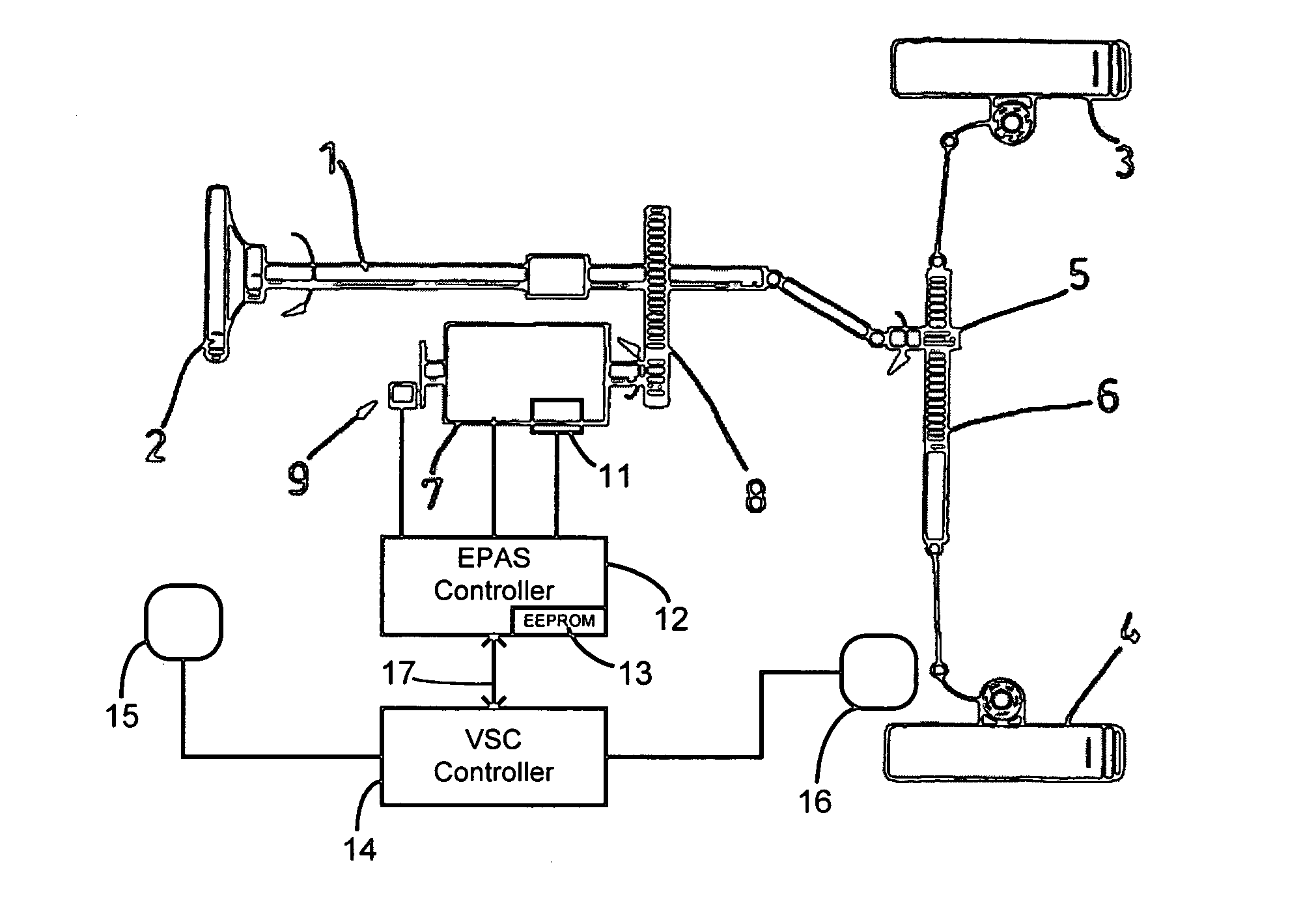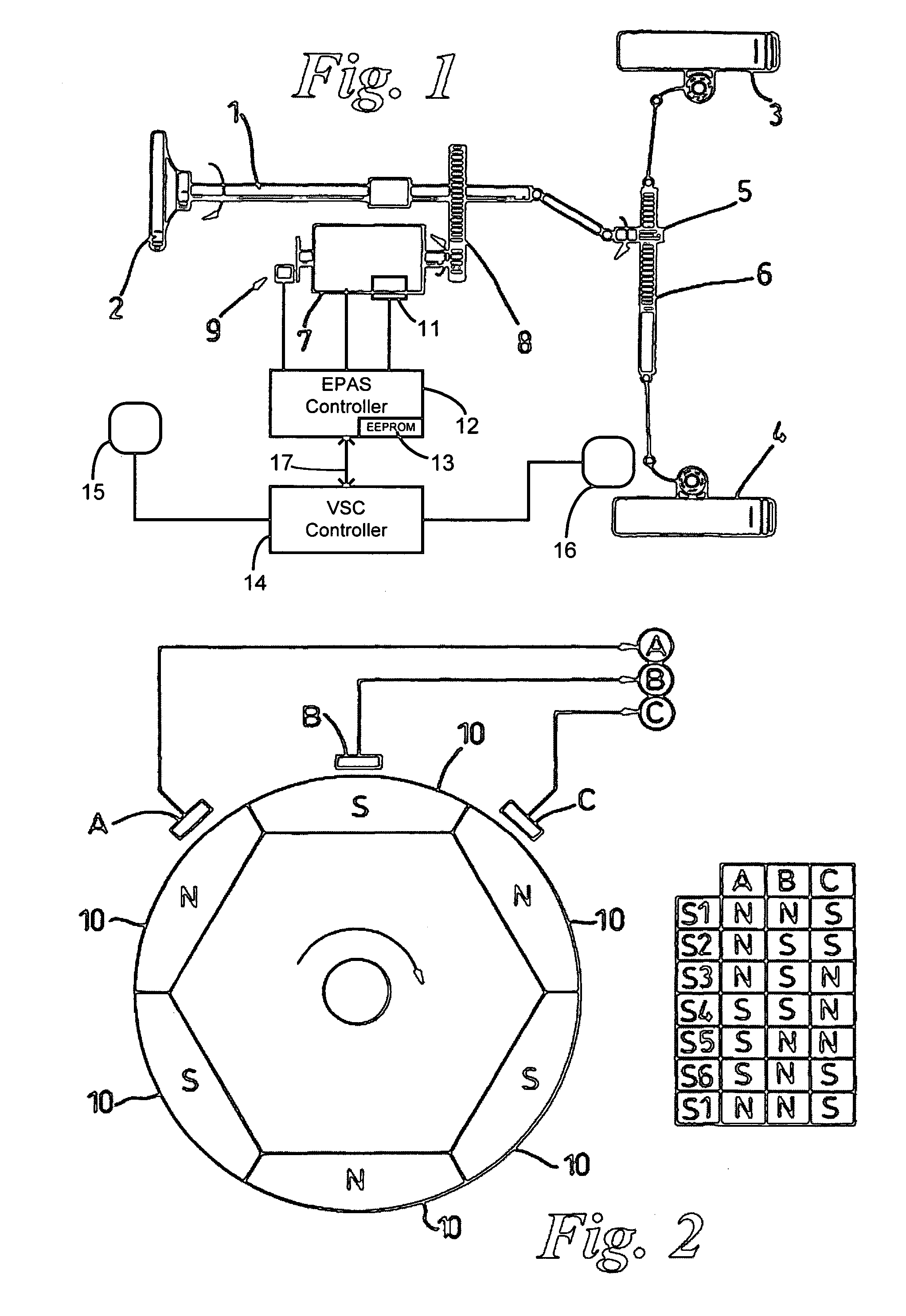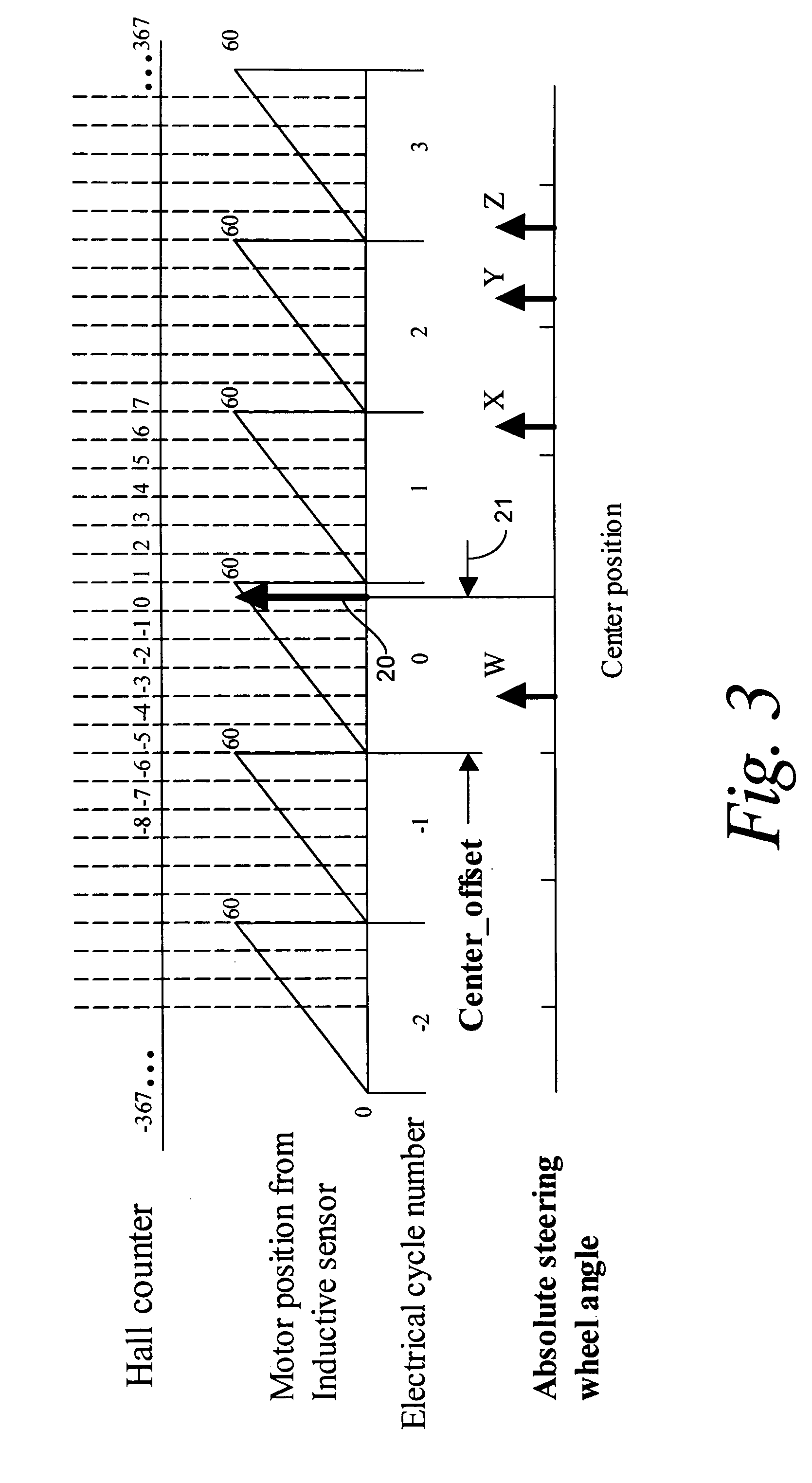Recovery of calibrated center steering position after loss of battery power
a center steering position and battery power technology, applied in the direction of non-deflectable wheel steering, underwater vessels, special data processing applications, etc., can solve the problems of inaccurate count, insufficient angular resolution for any associated control system, ambiguous absolute steering angle, etc., and achieve accurate absolute steering angle
- Summary
- Abstract
- Description
- Claims
- Application Information
AI Technical Summary
Benefits of technology
Problems solved by technology
Method used
Image
Examples
Embodiment Construction
[0026]Referring now to FIG. 1, a steering shaft 1 is operatively connected at one end to a steering wheel 2 and at its opposing end to a pair of road wheels 3 and 4 through a rack and pinion gearbox 5 and 6. In order to provide torque assistance to the driver, the system further includes an electric motor 7 connected to the steering shaft 1 through a reduction gearbox 8. Motor 7 may, for example, comprise a 3-phase permanent magnet brushless motor with a sensing means 9 comprising three Hall effect sensors A, B, and C arranged around the motor 7 to detect the electrical angle of the rotor by measuring the position of rotor magnets 10. The spacing of Hall effect sensors A, B, and C and the number of north / south magnet pairs deployed around the circumference must be sufficiently numerous to differentiate between different electrical cycles of motor 7 within 360° of mechanical rotation.
[0027]Motor 7 further includes an inductive position sensor 11 for measuring rotor position within on...
PUM
 Login to View More
Login to View More Abstract
Description
Claims
Application Information
 Login to View More
Login to View More - R&D
- Intellectual Property
- Life Sciences
- Materials
- Tech Scout
- Unparalleled Data Quality
- Higher Quality Content
- 60% Fewer Hallucinations
Browse by: Latest US Patents, China's latest patents, Technical Efficacy Thesaurus, Application Domain, Technology Topic, Popular Technical Reports.
© 2025 PatSnap. All rights reserved.Legal|Privacy policy|Modern Slavery Act Transparency Statement|Sitemap|About US| Contact US: help@patsnap.com



